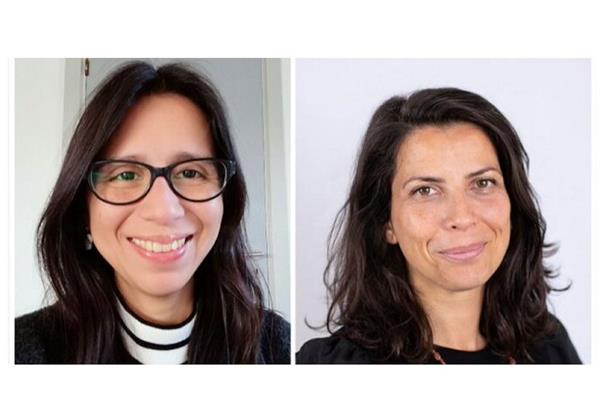
Ana Queirós: Seaweed blue carbon, or is it?
Nature-based solutions for climate change are much sought after strategies to use nature to address the causes and impacts of changes in our global climate system. Within this scope, seaweed conservation and farming have been placed in the spotlight as potentially important strategies. However, large questions remain around the potential carbon value of these habitats, and their broader effects our ability to limit climate change.
In this talk, I will explore recent, promising findings of the seaweed blue carbon research community, and major data gaps in our current understanding of the value of these strategies as nature-based solutions for climate change.
Cintia Organo Quintana: Climate regulation services of coastal vegetated ecosystems
Coastal vegetated ecosystems, such as seagrasses and salt marshes, are well-known for their ability to store carbon, commonly referred to as "blue carbon." Despite decades of research focused on quantifying carbon storage in these ecosystems globally, little attention has been given to the losses of carbon through mineralization and export.
During my presentation, I will explore the climate mitigation potential of seagrasses and salt marshes while addressing the knowledge gaps in carbon cycling and greenhouse gas emissions of these vital ecosystems. It is crucial to verify carbon budgets and accounting in blue carbon ecosystems to provide evidence-based knowledge to inform decision and policy-making at the local, regional, and national levels.
About:
Ana Queirós is an internationally recognised expert on seaweed blue carbon and climate change ecology, with expertise in field, laboratory and modelling based approaches. She has for the last 10 years led research advancing our understanding of the connectivity between seaweed habitats and the seafloor.
Ana Queiros has an extensive track record in the development of nature-based solutions for ocean management, and is leading research within globally distributed programmes that aim to help practitioners build climate resilience into marine conservation, restoration, harvesting and marine spatial planning, including important blue carbon habitat management (e.g. UNESCO Man & Biosphere programme collaborations).
Cintia Organo Quintana's (SDU) research covers topics from species-specific effects of benthic marine invertebrates, such as polychaetes, bivalves and crustaceans, to ecosystem level responses to diverse disturbances (e.g. pollution, hypoxia, eutrophication, physical stress, climate change and bioengineering solutions for restoration of coastal habitats).
Cintia O. Quintana is also the PI of the SDU Climate Cluster's Elite Centre of Aquatic Nature-based Solutions for Climate Change adaptation and mitigation. The centre works with methods based on ecosystem restoration and/or in combination to soft engineering interventions to tackle climate change by working with people and nature towards sustainable development and net-zero emission. The centre's research outcomes will include analysis of ecosystem functions and associated valuation of ecosystem services, and guidelines on the cost-effectiveness in upscaling aquatic nature-based solutions, addressing opportunities and challenges.
The lecture is presented by DIAS in collaboration with the SDU Climate Cluster and takes place in the DIAS Auditorium, Fioniavej 34 from 11:15 to 12:!5. Everybody is welcome and no registration is needed.
Live stream it at youtube.com/@danish-ias
- Arrangør: DIAS
- Adresse: Fioniavej 34, 5230 Odense M
- Kontakt Email: vip@sdu.dk
- Tilføj til din kalender: https://eom.sdu.dk:443/events/ical/76680089-d830-41ff-a72f-9bb1b2e4f7d9